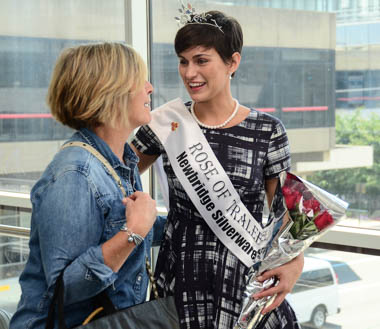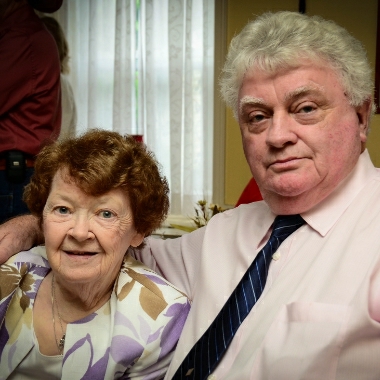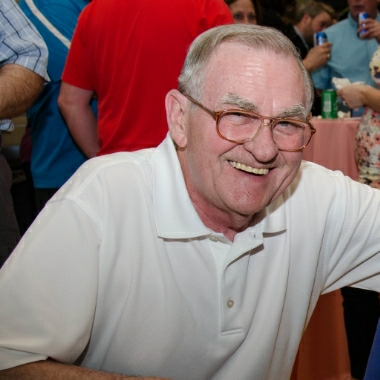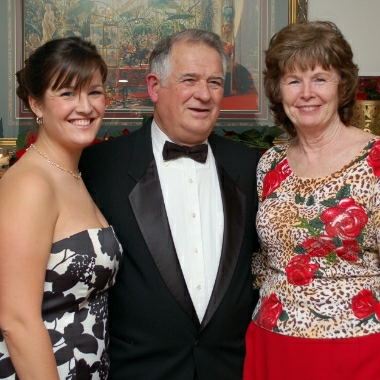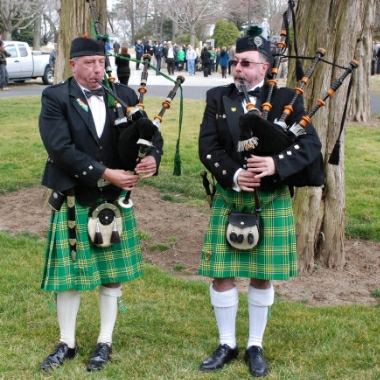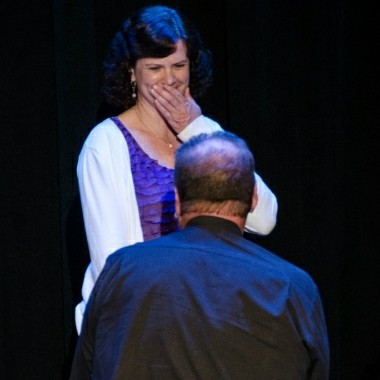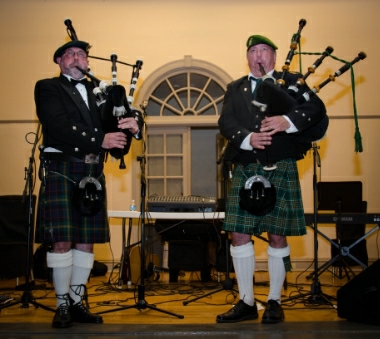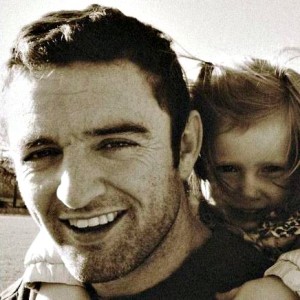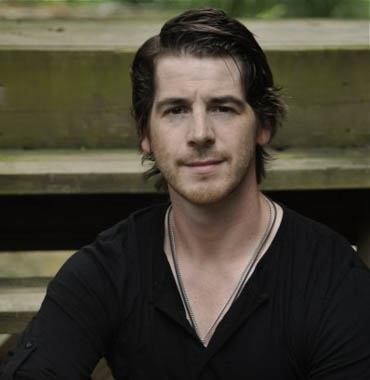
Comic Mick Thomas
Mick Thomas is from a small town in County Wexford. “That’s in the southeast of Ireland. It’s the Florida of Ireland, except without the nice weather,” Mick told me as we chatted this week on the phone. I am already laughing, then he makes it worse. “It’s 20 degrees out and people flock to the beach. [Insert high-pitched heavily accented voice here] ‘Oh God, it’s lovely out.’”
Thomas, who now lives on Long Island, is a staple on the New York comedy scene, opening for comedy greats like Colin Quinn, Dom Irrera, Louis Anderson, and the late Greg Giraldo; performing with Jerry Stiller and Christopher Lloyd; and headlining clubs like McGuire’s Comedy Club (where he recorded his first CD, Live at McGuire’s), the Comic Strip, and the Governor’s Comedy Club, among others. He also provides the comic relief on the Celtic Thunder cruises.
He’ll be appearing next Friday night, September 5, at The Irish Center, with fellow Long Island comic Dennis Rooney opening for him. It’s a fundraiser for the Center, which has fallen on hard financial times. Thomas says he likes helping causes, especially if he knows ahead of time what they are. He got burned once.
“I never say no to worthy causes,” he says. “But I once did a gig in the Hamptons before I found out what the cause was. They were raising money to hire people to scrape barnacles off their yachts. I was genuinely angry. I made fun of them for an hour and all they did was laugh. ‘Do you not understand that people are dying of cancer and I’m raising money for you to hire Mexicans to scrape barnacles off your yachts?’”
Thomas, who moved to America 10 years ago “to marry one of your women,” says that he wasn’t the funniest guy in Wexford by far. He gives that accolade to his two brothers, neither of whom does it for a living. “The two funniest people in the world are my two brothers.” They—and the rest of his family and friends back in Wexford—are also his toughest audience.
“I went back to Ireland for a tour and did a theater in my hometown and I bombed horribly,” he recalls ruefully. “Family, friends, the local people—they won’t give it up to ya. They’re out there, ‘We paid for this? We know all these stories.’ Eventually, people are shouting out the ending. ‘And you spent the rest of your life in jail. We get it. Yer wasting valuable drinking time.’”
But Thomas says he’s pretty much hardened to the effects bombing on stage. Before he became a stand-up, he was a four-time Ireland professional kickboxing champion and the European kickboxing champion. “I’ve never had any phobia about bombing on stage. I once got knocked out in front of 7,000 people. That was embarrassing. If somebody doesn’t like a joke, who gives a crap?”
He was more than knocked out. Over the nearly 10 years he spent in the kickboxing ring (starting at 16 and while also working as a banker) he was seriously injured. “If you look carefully at me, my left eye closes more than the right. My smile is crooked from a broken jaw. And I only have one kidney now too.”
That, I observed, isn’t visible. “Oh, I don’t know,” he retorts. “’Ye’ve got a weird walk on ye—ye must be a one-kidney guy.’”
When he followed his then girlfriend, now wife, Kelly, to New York 10 years ago, he decided to follow his other passion for making people laugh. “I went to a comedy class where I learned all about the business. You can’t learn to be funny. You either are or you aren’t. But it was helpful businesswise.”
He also caught the eye of Jon Starr, the actor-writer known for his role in “The Adventures of Tintin” and “Date Night.” “He took me under his wing and I started with a seven-minute set and slowly built it up, adding material, till I had an hour.”
Thomas started doing open mikes, then began getting booked for money, opening for the headliners. Lately, he’s been the headliner. He’s also done TV, including Live at the Gotham. He recently auditioned for another show that could provide a huge break—but we can’t go there yet. “I don’t want to jinx it, but they liked me,” he says.
But it was that audition where he learned something he sort of knew—that he can “get away with a lot more than the average person,” in part because of his accent and in part because, “even though I’m very honest, my comedy isn’t malicious, it doesn’t come from a hurtful place. And I’m the always the victim of my story, even when it’s about my kids.”
For example, he does a bit on going to see his daughter’s first dance recital. “She was up there for six minutes and she was by herself doing a solo—that’s what solo means–and she was dancing, and I welled up and got teary-eyed and I’m not afraid admit I realized. . .that I had wasted so much money on these dance lessons. She was absolutely shite. She was terrible, really bad at dancin’. And I’ve seen some bad dancin’. I’ve been to strip clubs in Chernobyl. Just awful dancin’.”
You can watch the bit here.
He laughs when I bring up the bit, which I loved. “It happened again,” he tells me. “I picked her up from karate this week and watched for a while and thought, jeeze, she’s terrible. But of course I said, ‘good, honey, keep at it you’re doing great.’ She has no coordination, good God. She gets that from her mother. But really, how many parents are on the sidelines thinking that?”
Show of hands?
Many comics today measure their success by whether they get their own sitcom. While he wouldn’t turn it down, Thomas says his passion was, is, and always will be standing in front of a live audience, making them laugh. “It goes back to when I was a kid, when I was five. I remember allmy family members saying, ‘oh, he’s funny’ and I thought this was what I wanted to do for the rest of my life, make people laugh for a living. Of course, I didn’t know what ‘for a living’ meant. I thought it as like an episode of ‘Bob the Builder’ and the doctor made the same money as the baker and my role would be to be the funny one. I didn’t understand ‘pay scale.’”
You can see Mick Thomas and also help raise money to scrape the barnacles off the Irish Center on Friday, September 5, starting at 7 PM. Tickets are $25 and are available at the door.

